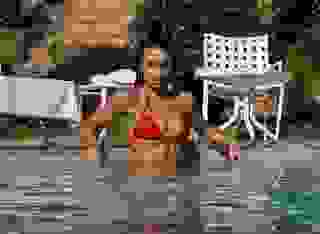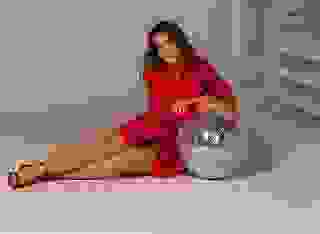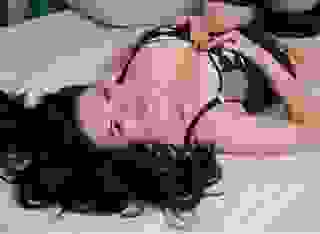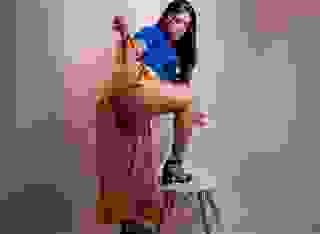Note: You can change font size, font face, and turn on dark mode by clicking the "A" icon tab in the Story Info Box.
You can temporarily switch back to a Classic Literotica® experience during our ongoing public Beta testing. Please consider leaving feedback on issues you experience or suggest improvements.
Click hereI had been programming a new VHF radio all morning and was planning on tackling the Single Sideband radio later that afternoon, but now it was time for our walk so Max was leashed-up and off we went, heading to the doggie park above the marina. Clouds were rolling in off Puget Sound and it was getting cool out, too cool for shirtsleeves and cargo shorts, so I ran with Max through the parking lot past the boat ramp, but today we sprinted out onto the sand, running down the beach and out to the pond at the north end of the park. We were both winded so I sat on a log that had drifted ashore and Max roamed around, fresh on a new scent, then he turned and bonded down to the water's edge and started barking.
He does that from time to time, usually when an orca or a dolphin cruises by, so I scanned the water -- looking -- but after a moment he came back to me and we walked back to the marina and, after I brushed the sand from our lower legs, we boarded Tiki. I freshened the water in Max's bowl and I ate a few cherries just in from the eastern slopes of the Cascades, and just when I was about to tear into the Single Sideband I heard a knock on the side of the hull. I left the chart table and went topsides, halfway expecting to find Pat or even Carolyn waiting there, but no, I found nothing. And then I heard the knock again and jumped down to the dock to look at Tiki's waterline. And again, nothing, not even a random bit of driftwood.
Another mystery, I thought as I returned to the chart table.
A few hours later, with my days as a radio technician now behind me, I showered and was dressing again when the knocking resumed, this time more urgently. Max sat up and growled, so I knew then that these weren't simply the imaginary knockings of a delusional mind, and he led the way up the companionway and out onto deck. Once again I hopped down onto the dock and made my circuit around the hull and again I saw -- nothing, as in not one thing. I did catch a slight swirling in the water aft, under the Zodiac, something like the minor disturbance a fish near the surface might make. And then Max looked over at me and sneezed in consternation, and he tossed in a low growl just for good measure.
So, mystery still unresolved.
Carolyn and her man-friend came down the ramp and walked past us without so much as a word, and I shrugged away the slight as I ducked below for shoes and a leash. After that chore was done I made a salad for us both, though I'm careful to avoid onions on Max's, and he sneers at my salad dressings. We ate in the cockpit while the last of the midday clouds dissipated and a vast crimson sunset beyond the Olympics burst into view. I read for a while until it became too chilly for us both, and as I was gathering my book and blanket we heard a thrashing in the water just aft of the stern and I rushed over just in time to see a sea otter land on the swim platform. The creature looked up at me for a while, and even Max stood transfixed as he eyed the creature, though the hair on the top of his neck was now standing on end, and then the furry thing simply turned away and slid noiselessly into the inky black water.
"Well, Max," I recall saying, "that's not something you see every day."
But he stepped close and then leaned into me, and I'm still not sure who was holding whom up at that point; I think we were both in a mild state of shock...
"Next time he comes," Barnacle Bill said, his disjointed voice drifting over us from nearby shadows, "have a few slices of salmon ready. He loves his salmon."
"Don't we all," I sighed as I turned to face Pat. "So, I see you're up and about?"
"Well, I'm not dead yet." When I turned I saw he was dressed all in black. Like a running suit, with black sneakers tossed into the mix just for consistency's sake.
"Going on a mission tonight?" I asked, admiring his choice of clothes -- though I wondered where he was hiding his Uzi.
"No, just dinner. You two care to join me?"
Max was all-in. He hopped down to the dock and sat at Pat's feet, his tail swishing in mad love; his hopes for more fresh salmon apparently knowing no bounds, and then Pat rubbed his ears and Max drifted into that place he goes when just the right spot gets the attention it deserves. "Let me grab a few things," I said as I went below for car keys and shoes, and a few minutes later we were sitting on the narrowest of patios overlooking the water at Ray's Boathouse. Slices of salmon magically appeared as soon as we were seated and so Max was on his best behavior; Pat, on the other hand, produced a pair of binoculars and trained them on a house down closer to Ballard locks. He fiddled with the focus and then put them away when our dinner appeared.
"Know someone down there," I asked, "or are you just a run-of-the-mill peeping Tom?"
"You could say I know someone, yes," Pat said as he carved a razor-thin slice of salmon for himself -- and then a two-ounce slab for Max. Pat actually managed to take in a few leafy sprigs of arugula and kale, too, before he pushed his plate away. Max eyed the remaining salmon dolefully until Pat relented and started carving several slices for him, leaving me to shake my head in wonder. He kept a few slices in reserve, however, placing them in a zip-loc baggie and then in a jacket pocket.
"How was your stay in the hospital?" I asked, hoping beyond all reason to get him talking.
"All things considered, it could have been worse."
"I assume you don't really want to talk about it?"
"You assume correctly."
"Humor me."
Pat looked away, then down at the remains on his plate. "It seems that I am a fine candidate for dialysis, Spud. Yet let me be the first to tell you that I have no intention of subjecting myself to such torture."
"Isn't that a fatal course of action, Patrick?"
"So they tell me."
"I see. Well, Max will certainly miss you."
"He's a remarkable fellow, you know? Especially his eyes. He seems to see things I can't."
"Oh? Like what?"
"I think he can see into my soul, Spud. But, isn't that silly?"
I shook my head. "No, not at all. I've felt that too. More than once, I think."
"Do you think it's just him? Or are all dogs like this?"
"I'm not altogether sure, but I'd like to think they all can."
"Terrible if that's true. So many are treated so cruelly."
"Oh, well," I sighed, "we tend to treat everything and everyone with casual cruelty, at least when the situation warrants."
"The situation warrants?"
"When the mood strikes," I added.
"Ah, yes. We are such noble creatures."
"We can be."
"When the situation warrants?" he said again, smiling. "'Oh, what a piece of work is man?' I wonder. Are we so simple as that?"
"'And yet to me, what is this quintessence of dust?' Is that what you're saying?"
"And the pilot quotes Shakespeare!" Barnacle Bill cried. "What have we here?"
"I don't buy it, Pat. Dialysis can't be as bad as the big sleep."
He looked at me cautiously, yet almost sardonically: "And I pray you never have to confront the choice. The two look equally bad to me, at least from where I sit."
"Are they telling you how long you've got? Before your kidneys fail completely?"
"No, of course not. Vague rumblings of a month or two, that's all. But...who knows?"
"A lot can happen in a month or two, Pat. Can you think of anything you'd like to do?"
"No, not especially, but thanks for the thought. I am enjoying my time with Max, however."
Our waitress came and despite my protests Pat picked up the tab, then we moseyed through the restaurant and back out into the night -- but just then it was as if every bird in Seattle took flight all at once. The air above us was, in the next instant, full of birds flying out over the sound, and the hair on the top of Max's neck stood on end again...
"What the..." I had just started to say when the earth beneath our feet fell out from underfoot and then started sliding sideways, and it all happened so fast that the three of us were quite literally almost suspended in the air above the sidewalk for a split second -- and then gravity reasserted itself and we tumbled roughly to the pavement...just as Puget Sound came rushing in, covering us completely. Now, instead of standing up and brushing ourselves off, we were treading water too deep to stand in.
And then the sirens started wailing.
"What the hell is that?" I wondered aloud.
"Tsunami warning," Pat sighed, just as the restaurant behind us began creaking and moaning as twisting lumber gave way in a colossal implosion.
"We've got to get to the boats!" I said, grabbing a clearly terrified Max and an equally mortified Barnacle Bill and pulling them into shallower water. When I found solid footing I picked up Max and put him around my neck, then I helped Pat climb out of the water.
And when he was free and standing on a tilted slab of sundered asphalt he turned and looked towards Ballard locks, then to me. "Can you get your Zodiac ready to go -- fast?"
"My Zodiac? Why?"
"I've got to get over there," he said, pointing to the house he'd been looking at through his binoculars.
And then the earth heaved again, only this time in earnest. We turned to the southeast as a vast rending of the earth unfolded in a sharp series of wrenching, grinding shrieks, this followed by a terrifying blast that once again knocked us off our feet. We couldn't see the horizon now, just immense reddish-orange plumes of lava arcing into the sky, coming from the general direction of Mt Rainier, and now it appeared as though dozens of houses and businesses in the immediate neighborhood were on fire.
Once again I picked up Max, and after I helped Pat back to his feet we took off through the maze of jumbled asphalt back to the marina. I jumped in my Zodiac RIB then lowered the outboard, and after hooking up the fuel line I pulled the starter lanyard and the Yamaha sputtered to life. I tossed the lines to Pat on the dock and Max jumped in, then I helped Pat step in and sit.
"Where to?" I shouted over the sound of sirens going off all over the city.
"Towards the locks, right before the railway bridge, a house, a grey house, just on the south side..."
And as we spoke all the lights in the area simply went dark.
I twisted the throttle and off we went, and for a split second I could see Mount Rainier. Lava was boiling down her flanks into the forests below and now everywhere we looked we saw two and three-story condominium buildings that had been flattened under the concussive hammer blows of the Cascadia subduction zone giving way.
I had a small handheld ICOM radio in a pouch near the fuel tank and turned on the WX band, and the warnings now were loud and clear. "Expect a large tsunami within 45 minutes. Seek higher ground now. All air traffic grounded."
"Can you handle Haiku by yourself?" I asked Patrick as the meaning of these words sunk in.
And he nodded. "As long as I don't have to set sail, yes."
"If you've got a countdown timer on that watch, set it now."
"Right. Good idea."
Then he pointed to an area in the darkness. "Head there," he said, pointing to a row of houses that lined the entrance channel to Ballard locks. The water level appeared to be six, maybe eight feet higher than normal, and as we drew near it was apparent that some of these homes were now awash, but not the house Patrick was pointing to.
I pulled the Zodiac up onto a small patch of green lawn and then both Patrick and Max jumped out and dashed inside the house. A small house down the hill towards the locks then burst into flames and I guessed that gas lines were venting and sparking off now, finishing the job that nature had just set in motion, but now the entire area was suffused in a garishly bright orange glow.
I saw Carolyn run out of the house, then her friend came out with Patrick, and between them they were helping another woman out of the house. Max sprinted out just before a gas line in the kitchen let go, and in the next instant the house went up in flames. The water level was receding fast now, and I pushed the Zodiac into deeper water to keep her prop clear, then I helped everyone get aboard and seated.
As we motored away, now grossly overloaded, houses started popping off like bursting kernels of popcorn, and the sulfurous odor of rotting eggs floated in the air above Elliot Bay.
"How much time?" I asked Patrick, and he checked his wrist.
"Call it 20 minutes," he sighed, because he was doing the same math in his head that I was. Five minutes to the docks, perhaps ten to cast off lines and warm up engines, then the balance to get out into the bay and to get our bows pointed into the tsunami. My only real concern was that the tsunami's wave might prove too tall, but it would take a mighty wave indeed to take out Haiku.
When we made the docks I didn't need to tell Patrick what he needed to do; he was, as was I, in the middle of a monumental adrenaline rush, and I think even poor Max was as well, and as Patrick and his group ran for Haiku I secured the Zodiac to the davits then went aboard Tiki to start the diesel. About a quarter of the boats in the marina were liveaboards and these were streaming out the breakwaters as fast as their motors would carry them, and after I cast off our lines I slipped the transmission into reverse and began backing out of my slip, trying to keep an eye on all the boats cascading towards the south breakwater while I also looked at Haiku. Her engines were running, lines were being cast off, then her bow-thruster kicked in and her bow began to swing away from the dock...
And I turned on my main VHF and selected the WX channel, and the computer-generated voice came through loud and clear once again: "Tsunami imminent, seek shelter on higher ground," was repeating over and over again. More sirens began wailing and as Haiku and Tiki rounded the breakwater I turned, hoping to see Mount Rainier in all her tortured glory.
But the main axis of her pyroclastic flow had been directed at Renton, and now the southeast horizon was a wall of blackish-grey cloud that seemed to be alive with flickering arcs of lightning. The Space Needle was leaning drunkenly, and it must've been equipped with emergency generators or batteries as red lights still flashed on her uppermost rooftop, but everywhere else I looked all I could see was a darkened city dotted with spreading islands of fire. Helicopters were in the air, but that was about the only other activity I could see from my vantage point.
Then I heard a chorus of horns, yacht horns and small boat horns playing a shrill symphony of terror and I turned to face the music.
The tsunami must've dissipated some of it's energy on its way past Whidbey Island, but now all that spreading energy was meeting the three-mile constriction between Edmonds and Kingston, and the tsunami's wave was building again -- but critically, for us anyway -- it wasn't breaking, yet.
Haiku was ahead and to our left, and I could see Patrick at her helm -- steering not by hand but by autopilot inputs -- and despite myself, I had to laugh.
As the onrushing wave came at us, its speed surreal, everyone out there on the sound pointed their bows directly into the wave, but not Patrick. He was approaching about twenty degrees off-axis, correctly, so he could control his ship's speed on the backside of the wave. Boats behind us began to alter their course as well...
...and then the tsunami was on us...
...and it was then that I saw the woman we had rescued from the house by the locks, and at first I didn't recognize her. But now I was staring at her from behind, her kimono aglow in the orange light coming from the city burning in our wake...
...and I could clearly see she was the woman from my dream. The woman with eyes of amber standing among the trees and the castle, and I followed her up the face of the wave -- and then into the unknown on the far side of this bewildering night.
The Third Part of the Tale
The jet stream, as far as I could tell, was carrying Mount Rainier's ash cloud across the northern tier of the United States, as well as into southern Canada, and, so far at least, cities around the Great Lakes appeared hardest hit. The constellation of GPS satellites was completely unaffected so Tiki and Haiku, as well as the few dozen other boats from the marina, were making our way to the northwest during that first night after the eruption of Mount Rainier. Sailing past Whidbey Island, and the Naval Air Station on the northwest coast of the island, I could see that most of the trees and houses had been scoured from the land, and I could see no trace of the hangars and all the other, smaller buildings at the air base. I'd spent months there twenty years ago and what had once seemed so permanent had simply been wiped away. I felt real pain as I looked at the scrubbed remnants of the island and wondered how many people had managed to make it to the mainland or to high ground. In the 45 minutes they had.
But now every frequency we tried on the VHF radio replied with only static, even the automated weather frequencies were silent now, and that could only mean one of two things: either the antennas were all down -- and this was unlikely -- or the Coast Guard and NOAAs reporting facilities had been taken out. Next thing to try was the internet, so I fired up the inverter and powered up my StarLink antenna, and it took a few minutes to acquire signal but then I had an active connection. Once my MacBook was connected and the browser launched, I went to CNN.
Coverage was scanty at best, but astronauts on the ISS had imaged the area from Vancouver to Portland, Oregon, and that was when everyone learned that Mount St Helens and Mount Hood had also both erupted overnight. Now even a cursory examination revealed that everything on the Pacific coast north of Eureka, California had been shattered and then scrubbed from the surface of the planet by either tsunamis or lava flows. The largest of the Puget Sound tsunamis had put out the fires we'd seen in the city, but then the wave had marched inland and slammed into the Cascades, in the process running into the lava flows racing down Rainier's northwest flank. Lava had somehow continued flowing down the valleys that emptied onto the flat coastal plains where Tacoma and Renton had once been, but those images had been taken an hour or more ago and it was likely the lava had reached Puget Sound by now.
I switched on the loud-hailer and called out to the boats within range and asked them to go to VHF 16, then I relayed what I had seen on CNN to the 20 or so boats in our ragged little flotilla.
"So what do we do now?" someone asked. "I mean, we can't go back, can we?"
"Look," I said, "I can't tell what conditions are like north of here, but CNN says there's been no word from either San Francisco or Los Angeles so they may have earthquake or tsunami damage there. Same for Hawaii, and that begins to narrow down our options. We could move north, towards Desolation Sound and Alaska, or we could try for Polynesia, Australia, or New Zealand."
"No way I could make it that far," a woman said, her voice sounding very small indeed. "I've got twenty gallons of diesel and maybe forty gallons of water, and I've never been outside." The open waters of the Pacific were often referred to as 'Outside' by sailors around Puget Sound, primarily because the Sound offered protected waters while the waters 'outside' were exposed to all manner of weather-driven sea states. Making a trans-oceanic passage in a small sailboat was not something to be undertaken lightly, either. Such boats had to be designed to handle offshore conditions and at a minimum there also had to be enough fuel, food, and water to sustain life for a prolonged crossing. A water maker would help, but only if the boat in question had enough fuel onboard to power the system.








